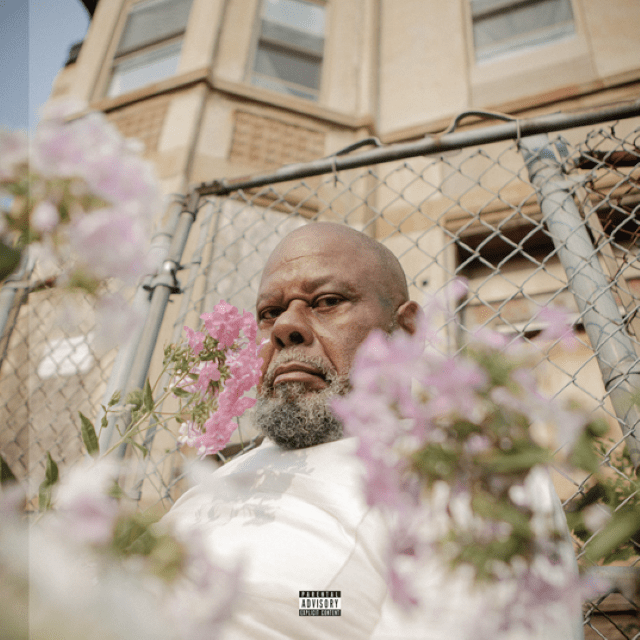Andy Knox
Staff Writer
Few Good Things is Chicago rapper Saba’s first major release since his highly acclaimed 2018 album Care For Me, which brought him into the mainstream. His new album is set in his new life situation, with most of the songs exhibiting different modes of his introspection around his success, its contrast to its previous life, and what it all means to him.
Both Saba’s newfound status as a nationally recognized rapper and his history as a local Chicago emcee are evident in the wide array of artists he chose to have featured. The album mixes in lesser-known Chicago artists and groups such as G Herbo, Smino, and Pivot Gang, as well as better-known artists from other parts of the country like Eryn Allen Kane, 6LACK, and Black Thought.
The way Saba chose his features, with many being near unheard of and some being much widely recognized names, also reflects the album’s pervasive theme of celebrating and taking advantage of his success while making an effort to elevate those less fortunate. Saba’s rapping style is often similar to that of his fellow Chicago rapper Noname, who is known for her chipper-sounding, steady and quick bars delivered with nostalgic, whimsical tones and themes.
Though there are a few heavier tracks, much of the album sounds dreamy and sentimental. It also has a clear influence of Kendrick Lamar’s legendary album To Pimp a Butterfly, which made similar use of overwhelming multi-layered back up vocals at certain times and had similar themes of making it out of a bad neighborhood through rapping.
The album opens with the short “Free Samples,” which starts out slow and draws the listener into the album with consistent increasing intensity that ends with a sudden cliffhanger of both words and instruments. It does a good job of previewing the album’s themes of success and worry about those from home who haven’t made it, but the lyrics themselves are nothing special, and there is some noticeably off-pitch humming that adds a surprising but off-putting element of laziness to the track.
The album’s title and final track is broken up into two parts. The second and third verses are separated by long stretches of near silence, broken only by faint, distant bird calls. Saba begins his final verse by repeating the first track’s closing lines. He continues rhyming each bar with the first four to convey the effect of picking up where he left off at the start. The use of this seems limited to giving a sense of a coherent opening and closing to the record; it is now a sandwich rather than a jumble of different ingredients.
However, this hint of a concept or story for the album leaves the listener wanting more. Though the album has some consistent themes, it does not have the recurring motives or narrative arc that one might expect from such a beginning and end.
That being said, Saba’s bars on the title track are some of his best in the album. Perhaps owing his creativity to the pressure he felt from working with the lyrical genius Black Thought, Saba adds uncharacteristic amounts of imagery to his creative flows, multisyllabic rhymes, and clear description of the facts of a situation. As fans would expect, Black Thought’s verse expressing his appreciation for his family was vivid, dense, and a standout verse of the record.
“One Way or Every N***a With a Budget” also includes nice imagery alongside a groovy, pleasant, and melodic flow. Both the vocals and the beat (featuring plucked bass, multiple bells, and hands clapping) have some clear influence from his now possibly retired contemporary Noname.
Unfortunately, most of Saba’s lyrics are not as vivid and creative as they are on these two tracks. For example, a few of the songs, like “Come My Way,” “a Simpler Time,” and “If I Had A Dollar,” all evoke nostalgia and feature Saba regaling his audience with experiences he had when he was younger, like playing basketball and exploring with his friends. Although it is nice for any individual to reminisce about their childhood memories, Saba does not express these experiences in a way unique enough to make the tracks especially memorable for most listeners.
This points to the largest problem with the album. It is understandable he would discuss popular topics like childhood, climbing out of poverty, newfound wealth, and the desire to help out those who have not made it out yet; however, Saba fails to explore these topics in a unique way, making it hard to see what he’s really adding to the conversation or to the music scene as a whole. Saba always delivers good bars, but he only talks about a few different topics, and his lyrical abilities are simply not on the level of the greats who have inspired him, like Kendrick Lamar, Black Thought, and Noname.
Overall, the album has a pleasant sound and some great tracks. It has a good mix of sentimental melancholy and anger at tough situations; however, the lack of originality in the lyrics, topics, and beats raises the question of whether Saba is bringing anything new to the table. Some of his inspirations even feel a bit contrived, like these sudden, inexplicable breakdowns in “Soldier,” which take it from sounding like just another song on the album to a cut from Kanye West’s chaotic experimental album Yeezus. Despite these problems, Saba demonstrates great spirit and potential with Few Good Things, as well as his songwriting skills.
Rating: 6/10

















